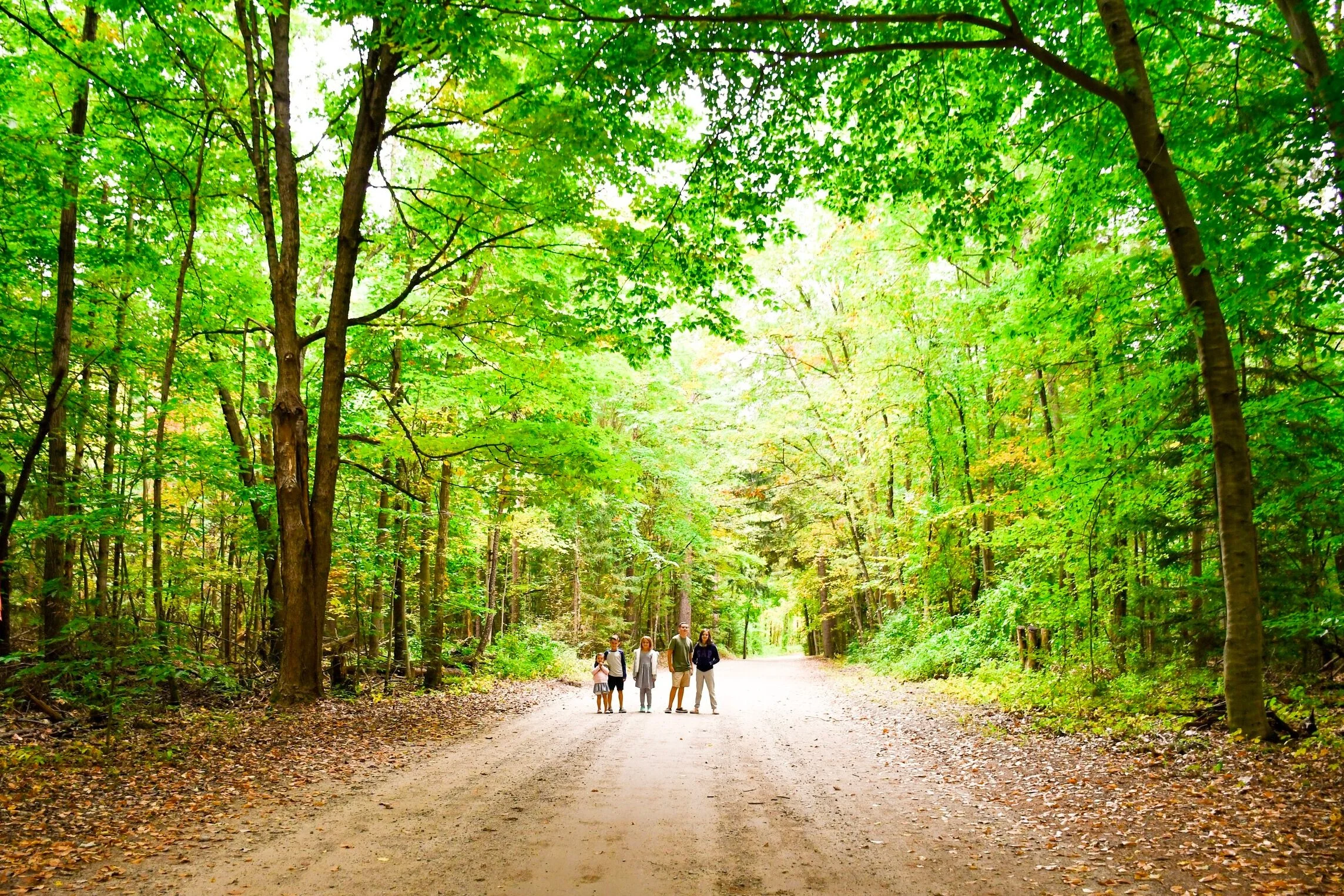Why 1000 Hours Outside?
In the sea of activities available to children and families the simple act of stepping outside to play can easily get lost. Who has time for playing in the yard when there are dances to be rehearsed, homework to be finished, music notes to be played, and soccer drills to run? Yet surprisingly, research shows that the cheap and simple act of playing outside offers the most developmental and health benefits for our children.
Our journey at 1000 Hours Outside is to provide insight into a different way to do family life, where nature time is often chosen before other activities. Through highlighting the litany of benefits that accompany breathing in outdoor air we hope to encourage and motivate your family to make nature time a priority.
Whatever shape nature takes, it offers each child an older, larger world separate from parents. Unlike television, nature does not steal time; it amplifies it.
- Richard Louv, The Last Child in the Woods
But why 1,000 hours?
Our original foray into extended nature time was influenced by a friend who was influenced by Charlotte Mason. Charlotte Mason was a British educator who lived from 1842 to 1923. She had many philosophies about children and education that still stand strong to this day. Mason recommended that children should spend seven spend 4 – 6 hours outside every “tolerably fine day, from April till October.”
In the first place, do not send them; if it is anyway possible, take them; for although the children should be left much to themselves, there is a great deal to be done and a great deal to be prevented during these long hours in the open air. And long hours they should be; not two, but four, five or six hours they should have on every tolerably fine day, from April till October.
-Charlotte Mason
Angela Hanscom, pediatric occupational therapist, author of Balanced and Barefoot and founder of Timbernook also touches on the time component. She states, “Ideally, kids of all ages should get at least three hours of free play outdoors a day.” A childhood that is filled with nature moments seems to be backed time and again by research. There are astronomical health, social, and developmental benefits that accompany time in nature.
It has worked for our family to aim for an average of three hours a day throughout one calendar year. There are lots of variables from season to season, both figuratively and literally. Some days, in the heart of the summer, we may be out from dawn to dusk. Others we may get outside for shorter periods or occasionally not at all go out at all due to illness, appointments, frigid temperatures, or other commitments.
We love the days that seem to stretch out before us, where we are able to be outside for hours on end. Those days change and refresh us. But we also love the days where we have a small smattering of nature experiences. We have learned that even 20 minutes outside can be brimming with sensory moments and joy.
There is much existing and emerging research recommending kids get long periods of time to play in nature. What are your outside goals for your family? Five hours of nature time a week would end up providing more than 15,000 fresh air minutes within a year.
Five quick tips and tricks
1) The average American kid watches 1200 hours of television every year. Let's try and match it with fresh air time. What a worthwhile goal!
2) It was surprisingly easy for our family to stay outside for hours on end. Nature occupies children in an endless varieties of ways. As long as we have enough food and water, we notice that kids don’t seem to tire of natural surroundings. Even after three to six hours outside, our children will often ask to play outside more later in the evening.
3) What about nap time? Tired little ones fall asleep easily in your lap, in a baby carrier or in a stroller. Older ones will make it through nap time and just go to bed a little earlier.
4) What about housework? There’s often a trade off between housework and laundry :). Your house may stay a little cleaner if you’re out of it for long stretches of time. But there does tend to be extra laundry. Personally, I take some deep breaths and remember that someday, when the kids are grown, I’ll have all sorts of time to clean.
5) Older kids love outside time, too. Depending on our location we run into middle and high school students often – fishing, kayaking, catching crayfish, climbing trees, skateboarding, reading in a patch of grass, drawing, etc. By utilizing weekend time, recess time and time at sports practices it is possible for teens to join in on the challenge!
I think it's worth a shot for every family. Childhood goes by quickly. We don't want to lose a large chunk of it to screen time. At the very least there should be a balance between the real world and the virtual world for each child. It's worth your time to play outside!





